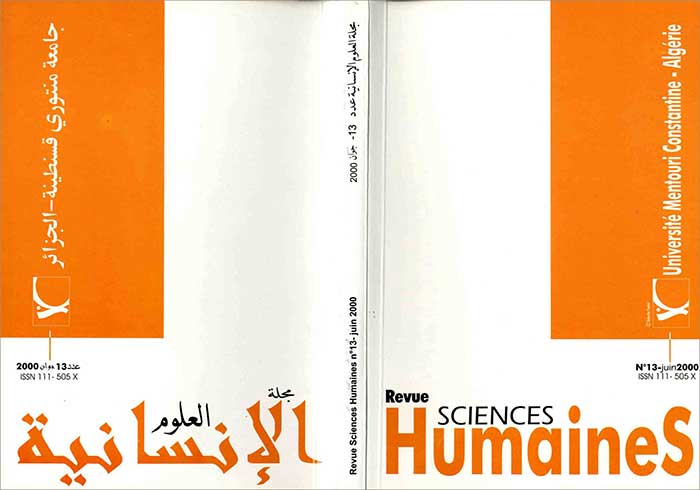Quantifying in international conflict: the linkage approach
Abstract
The evolution of international relations has introduced a development in the subject and in the method itself. For instance, the use of quantitative method could improve the international relations science, especially in the study of international conflict.
However, many writers still use the qualitative method. In this debate, the author gives an alternative method in the study of the relations between internal and external conflict behaviour.
Downloads
References
Wright, A Study of War, Chicago, univ. of Chicago press (1942), p. 254, and for a more elaborate point of view on "linkage theory" see James Rosenau; political science in a Shrinking world (an introduction) in linkage politics essays on the convergence of national and intra-national systems), ed. J. Rosenau, the Free Press, New York (1969).
Ibid.
Among scholars who have discussed such relationships without recourse to sophisticated mathematical techniques for testing them are George Simmel, conflict and the web of inter group affiliations ( New York, 1955). Lewis Coser; the functions of Social conflict (New York, 1962); Ernest B. Haas and Allens, Whiting, the dynamics of international relations, (New York, 1956) Richard Rosecrance, Action and Reactions in World Politics; International Systems in perspective (Boston, 1963); and Samuel P. Huntington; "Patterns of Violence in World Politics", in Huntington, ed. Changing Patterns of Military Politics (New York, 1962).
See, Robert Burrowes and Jose Garriga – Pico, "The Road to the six day War, Relational Analysis of Conflict and co-operation", in Peace science society (International) , papers 22 (1974) ; Burrowes and Gerald de Maio "Domestic / external linkages; Syria, 1961- 67" in Jonathan Wilkenfield, ed. Conflict behaviour and linkage politics (New York, 1973), chap. 10.
Rudolf Rumel "Dimensions of Foreign and Domestic conflict behaviour" in Dean C. Pruitt and Richard Synder, eds. Theory and Research on the causes of war (Princeton, 1969); Rummel, "Dimensions of conflict behaviour within and between nations", in Wilkenfeld, conflict behaviour, chap.3 (1963). Raymond Tanter, Dimensions of conflict behaviour within and between nations, 1958-60, journal of conflict resolution, v-x (March, 1966) 41-64. Wilkenfield, "Domestic and Foreign conflict behaviour of nations" journal of peace research (1968) 58-69- and others….
Joseph M. Scolinck, Jr. "An appraisal of studies of the linkage between domestic and international conflict" Comparative political studies, January (1974), vol.6, n° 4.
See Robert Burrowes, "theory si, data no. A decade of cross- national political research” world politics, v. 25, n°1, Oct. (1972), pp. 120-144.
Andrew Mack, numbers are not enough: "a critique of international/ external conflict behaviour research". comparative politics, vol.7, n° 4 ( July 1975), p. 599.
Ted Gurr, "A causal model of civil strif: a comparative analysis, using new indice" the American political science review, v. 62 (1986), p.123.
Azar argues that there is a lack of systematic examination of data sources by users of events data, and that a single source is not enough and could be misleading .see Azar, E.S.H Cohen,To Jukan and James MC Cormick:international studies quarterly v.16, n°3, Aug (1972), p.373-388. See also J.M Scolinck ,"An appraisal of studies of the linkage between domestic and international conflict", comparative political studies, vol.6, n°4 (1974), pp.485-509.
Ibid. p493
Ibid.p.493-94
Scolinck, op. cit.p486.
This problem has been discussed by a number of writers (Azar , 1970:8, Gurr with Ruttenburg, 1971; 189, McClelland, 1968;31-33) who consider it to be potentially serious.
See for instance, Gurr, "the Neo- Alexanderians: a review essay on data handbooks in political science", American poltical science review v. 68 (March 1974), p.250-51.
Scolinck, op. cit., p. 494.
Ibid., p.495.
Ibid., p.496.
For instance, Rummel and Tanter use factor and regression analysis; Wilkenfeld and Zina employ marker analysis, Warren Philips, Canonical analysis; Leo Hazelwood , Canonical and path analysis; and so forth. While each of these techniques has certain advantages claimed for it each in turn generates its own problems.
A. Mack, Numbers are not enough, op. cit., p. 616.
Burrowes, "theory si – data no", op. cit., p. 133.
Scolinck, op. cit., p.495-96.
Only Collins work on Black Afica (1969) tried to provide a genuine theoritical framework , but he also fails to test operationalized hypotheses which stem from it . While Tanter (1966) and the other researchers are occupied by a broad search for relationships rather than testing theoretically based specific hypothses. It seems evident that Tanter was primarily interested in replicating Rummel’s study rather than analysing or testing the particulr relationships proposed by the authors he cited. His and other researchers “ theory” sections do not develop or contain any theory at all.
Scolinck, op. cit., p.502.
A. Mack, op. cit., p.618.
See Alexander L. George, "case studies and theory developments. The method of structured, focused comparison", p. 43-68, in Paul Gordon Lauren (ed) Diplomacy, Newyork Approaches in history, theory and policy, the Free Press, Mc Millan, New York (1973).
Ibid., p.46.
Siddney Verba, "some dilemma in comparative research", world politics, V.20 (Oct.1967), p. 113.
Ibid., p.113.
For a comparison and lucid discussion of the three basic scientific methods, see for example Arrend Lijphart’s two articles: "comparative politics and the comparative method" American political science review v.65, (Sept.1971), p. 682-693, and the comparable case strategy in comparative research", comparative political studies, v.8, (July 1975), p.158-177.
Alexander L. George, op. cit., p.50.
A. Lijphart, "comparative politics and the comparative method", op. cit., p.691.
Ibid., p.691.
Lijphart, "the comparative case strategy", op.cit., p. 171.
Ibid., p.171.
Ibid., p.166-167.
H. Heclo, Review article: policy analysis, British journal of political science 2, (January 1972), pp. 83-108.












